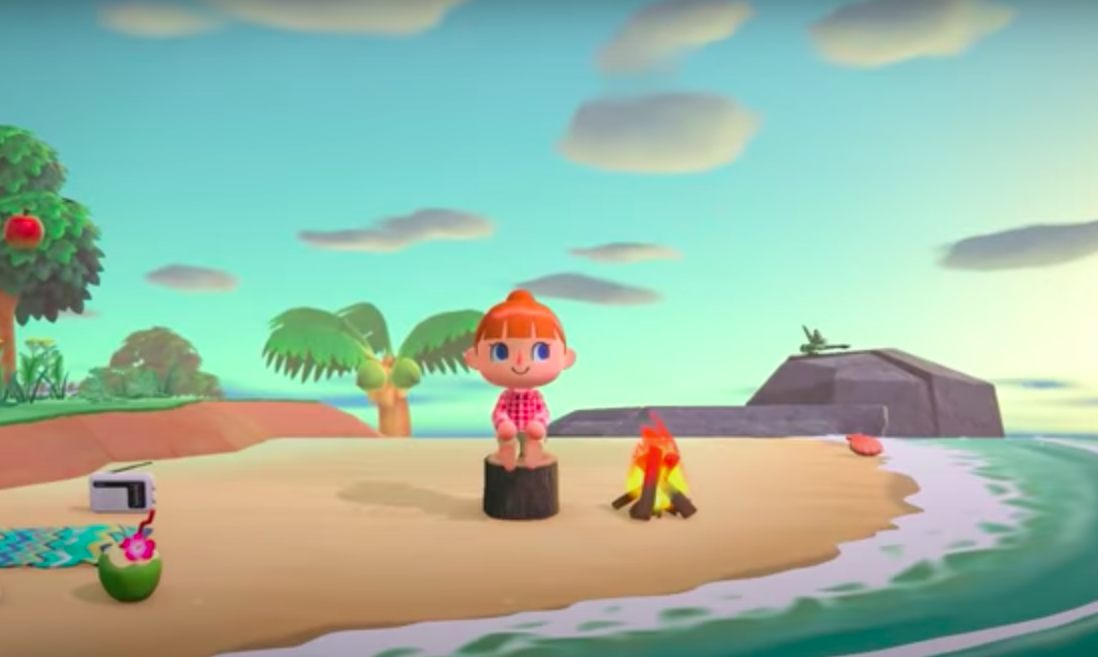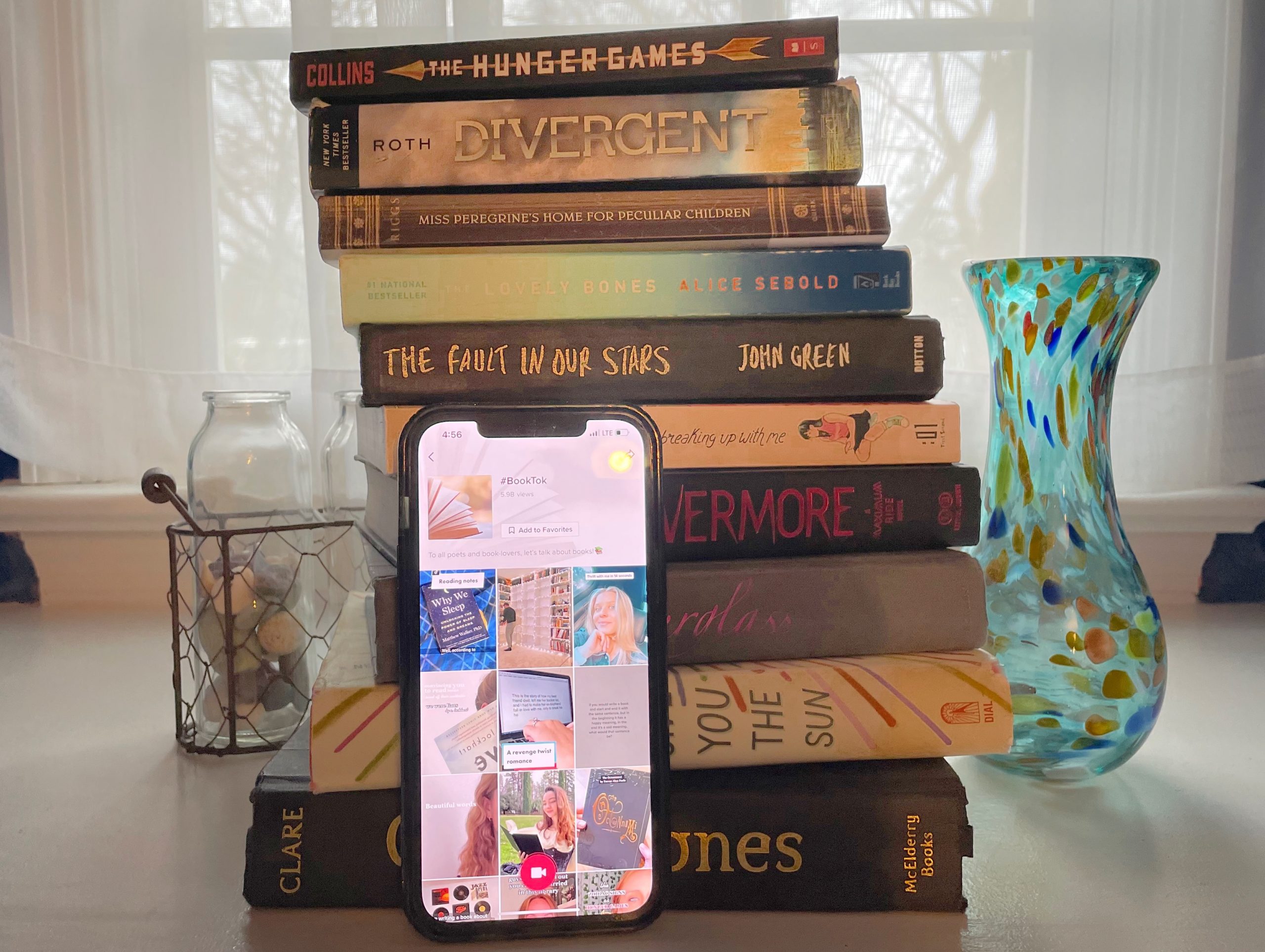interviews
The @PublishrsWeakly Twitter Account Is Calling Publishing to Task
We talked to the anonymous duo that's holding the industry's feet to the fire

The elements of Book Twitter are usually pretty predictable: unbridled and sometimes smug love for literature, self-promotion, subtweeting. There are hot controversies (spine-in books, anyone?) and baffling debates about the merits of The Catcher in the Rye once a quarter. You can practically set your watch by it. But this week literary Twitter got a lot more interesting when the parody account @PublishrsWeakly (that’s “weakly,” with an a) began racking up followers. The account was started in March but first tweeted on April 20. They caught our attention with a viral tweet calling for publishers, most of whom are based in New York City, to allow employees to continue working remotely in order to diversify the workforce. (For a brief, exhilarating moment, we thought the real Publisher’s Weekly social editor had gone rogue—or not that rogue, maybe? After this piece went up, Publisher’s Weekly reached out to note that the magazine had published an op-ed making the same point.) After gaining 3,000 followers in a day, the account, which is operated anonymously by an “out of work bookseller” and someone who works for indie press, seems to be shifting from parody to activism.
We talked to the anonymous minds behind @PublishrsWeakly, and we also reached out to Publishers Weekly for comment. Two-Es Weekly passed on the letter they’d sent to the parody account once they became aware of it, which we’re quoting with permission here (we’ve removed contact information):
Publishers Weekly-with-an-e here. We’re reaching out today to say that we recognize that publishing is not above parody, and neither are we. Our only request is that you change your logo to something that isn’t so confusing for readers, as we imagine your goal is to rally support and not to trick people. We see the subtle change to the PW logo that you’ve made, but it’s still likely to cause confusion, especially considering the flow of content that people are seeing on Twitter and particularly because a lot of people now follow us both.
We also want to reiterate that we welcome your opinion in the pages of Publishers Weekly, either as an op-ed or as part of a reported story about dissent toward PW’s #BooksAreEssential campaign. We’d be happy to have you talk with a reporter via DMs so as to ensure your anonymity.
The Publishers Weakly writers stress that they’re answering collectively, and the Electric Lit questions were written collectively as well, so read on for some hot collective-on-collective action.
EL: The perception that people get into publishing out of passion and commitment is often used as leverage to exploit them (“none of us are in this for the money”). But at the same time, a lot of independent and nonprofit publishers really are working with too few resources, out of a sense of cultural duty; they have the freedom to sign books without (as much) regard for commercial viability, but that means they literally do not have the money to do better by staff. What are the ethical obligations of independent publishers? Is there any way for a publisher to be both ethical and solvent? How do you find money to pay people without turning art completely into commerce?
PW: This is a multi-part question that’s going to require a multi-part answer. And we wouldn’t be staying true to ourselves if we weren’t confrontational right off the bat, so:
Saying that independent and non-profit publishers are working “out of a sense of cultural duty” is somewhat of a bad faith argument. As it currently stands, the publishing industry largely serves the interests of the wealthiest higher-ups, and that is the entire reason for any financial strain on publishers without the capital of a corporation. The larger publishers could easily take the risks that smaller publishers do. The only reason for smaller presses to be working with less is because that’s simply how the system has been engineered to function. You see it multiple times a year, the major publishers using the small ones as testing grounds, making the people who are working with less take the risks. Once an author at an indie press proves themselves with things like awards, or cult status, the big publishers will dangle a larger book deal in front of them to try and steal them away. Small presses only work with less because it’s in the corporate publishers best interests to keep it that way.
The only reason for smaller presses to be working with less is because that’s simply how the system has been engineered to function.
Secondly, why ask us about the ethical obligations of independent publishers? The implication there being that we hold them to some kind of higher standard than their larger counterparts. The real question should be: “what are the ethical obligations of publishers.”
The easiest way for a business to be both ethical and profitable is to educate the employees on what they deserve. A happier employee will do better work, and you can achieve these things through things like unionization, a collective understanding of the value of the work that you are doing. Value both in monetary terms, and in terms of importance. Every worker has the legal right to form a union, and it is shameful that people in our industry — the heads of Skyhorse, for one — should feel so comfortable firing those who’ve attempted to unionize.
It should be expected (required) that publishing staff should become acquainted with not only the perspectives of booksellers, but perspectives of workers in distribution and transit. How much money could be saved if we were to look to the workers actually handling the goods being shipped? Publishers wouldn’t have to spend so much money on marketing (and, ahem, Amazon ads) if there were more conversations with booksellers about what people actually want to read, or what the communities would actually need.
And finally, on the subject of “how do you pay people without turning art into commerce”: It’s not entirely just about financial compensation. It’s about our dignity and our rights as workers. Give people healthcare and sick pay and a living wage and then we can talk about the finer points of value and commercial vs. purely artistic output. Furthermore, to some extent, the major publishers have already done exactly that: turned art into a business. And yet they’re still finding ways to mistreat the people at the bottom of the ladder. Crazy how that happens.
Give people healthcare and sick pay and a living wage and then we can talk about the finer points of value and commercial vs. purely artistic output.
EL: Do people with a stake in publishing—readers, authors, booksellers—have an expectation that the industry will live up to some kind of higher ethical standard than other industries? Where does this expectation come from? Is it naive?
PW: There’s an elitism to publishing that stems from the product it produces. Books are “art,” books can “change the world,” and therefore publishing is necessarily good and just, that we’re all doing noble work, when that’s not exactly the case. Publishing is a business like any other, and so that comes with the trappings of many other industries, i.e. wealth inequality, mistreatment of workers, and racially segregated workforce, often determined by the disparity in wages. Publishing is an industry that very much believes in paying one’s dues, and then once those dues have been paid, they expect you to turn around and uphold that same system. You’ve been underpaid, or made to do the work of multiple people, or just otherwise stepped on, but at the end of the day your offices are on 5th Avenue. Becoming a part of the upper levels of the system is seen as compensation for what you are subjected to in order to get there. Publishing celebrates its own existence. This elitism is pervasive throughout the entire industry, even in the bookstores. The term “bookseller” seems aimed to elevate people above the average retail worker.
Obviously many of these issues are not unique to publishing, they’re systemic and pervasive to culture as a whole, but publishing is a small and closed ecosystem, which makes change a more immediately attainable goal.
EL: Has Publishers Weekly been in touch with you? (Is PW even the biggest offender here, or did you just like the pun?) Have you gotten hate (or support) from other, more unexpected sources?
We finally heard from Publisher’s Weekly about 48 hours after the account started, and they were surprisingly cordial. The only thing they asked of us was that we change the icon for the Twitter account, lest it confuse readers. We were never trying to produce chaos or spread misinformation, so we were happy to do so if it meant the continued existence of our avenue for critique.
Publishing is a business like any other, and so that comes with the trappings of many other industries.
While it quickly became about critiquing the industry as a whole, the account started as a way to send up Publisher’s Weekly’s #BooksAreEssential campaign. One of us is a currently out-of-work bookseller, and using the language of the COVID-19 era, saying that books are an essential service, seems to imply that the industry is willing to put people’s bodies on the line to sell a $14 paperback, and there’s no universe in which that is in any way justifiable. And as a side note, we would like to express our absolute solidarity with the workers in the Amazon warehouses for exactly that reason. They should be protected, and furthermore, allowed to unionize.
EL: If you had a manifesto, what would be some of the key tenets?
PW: There are some of the basic tenets of your average manifesto: fair pay; health insurance; and a wider number of voices being heard. Otherwise, a big thing we are interested in is transparency. There’s a sort-of samizdat Google doc that’s been circulating among the Big Five publishers simply called “Book Money.” It’s an anonymous spreadsheet where people contribute what their particular role is at which particular publisher and what they get paid for their particular role. That kind of knowledge is important if we are ever going to compensate people correctly. If you Google, say, “Penguin Random House CEO salary” the best numbers you can find are estimates. The estimates state that the PRH CEOs make about $250k per year, and that’s almost certainly lower than the reality of their salaries, especially once you factor in bonuses. We need that kind of transparency for two reasons: first, to galvanize people to make a change, and second to make sure that the changes that do get made are ones that result in a more level playing field.
Also, stop publishing war criminals, fascists, pedophiles, race scientists, and people guilty of sexual harassment and assault. This is not censorship, it’s just common sense. We don’t care how recognizable a name might be, and how many books that might sell. Certain things are just genuinely harmful and should not be given a platform.
EL: Do you have any strategies for turning this Twitter account into “on the ground” organizing? What do you hope to accomplish or change?
Our goals are to turn publishing into a more equitable and inclusive industry. One where top-down wealth does not drive the decisions that get made.
PW: We do, yes. We were contacted very early on by an organizer who is looking to build up a network of book industry people who are interested in reforming the industry. In the midst of the coronavirus pandemic, this would take place in the form of digital meetings and town halls, which would be held from the privacy of one’s own home, away from the eyes of employers who might be less than sympathetic to the cause of changing the industry. Our goals are to turn publishing into a more equitable and inclusive industry. One where diversity is a standard, rather than something to be achieved. One where top-down wealth does not drive the decisions that get made.
You can find the link for how to organize with us in the pinned tweet at the top of our account.
EL: On a scale of “together we can make a difference” to “burn it all down” where do you fall?
PW: It’s a 50/50 split, honestly. We hope to use this as a platform to make real change in the industry, but we cannot deny that everyone loves to see a brick get thrown every now and then.
EL: Give us some juicy publishing blind items.
PW: The average assistant-level publishing employee makes roughly $35,000 per year before taxes, even if they work for a multinational corporate publisher (Macmillan, S&S, Hachette, HarperCollins—and they’re union! ). At smaller publishers, it can be even worse, and at smaller publishers, it’s less likely that employees have adequate health insurance. For example, one of us has worked at a small publisher for four years, and they pay enough to pay rent and eat, but I also cannot remember the last time I saw a dentist (they do not provide dental insurance). My copay for every doctor’s visit is $50.
Corporate publishers beware, we are out there somewhere, watching.
The average bookseller makes minimum wage, equaling roughly $31,200 per year, and their employer typically does not provide benefits. Unionized bookstores are incredibly rare, and only now is there starting to be any kind of shift toward booksellers understanding the value of their labor. McNally Jackson in New York voted to unionize last year. And Elliott Bay Book Co. in Seattle flat-out established their own union, the Book Workers Union. There are guides online on how to organize and form a union. Booksellers are stronger together.
As for other blind items, you’re just gonna have to stay tuned to our Twitter feed.
EL: Do you plan on remaining anonymous? Want to break news here and reveal yourselves?
PW: We do intend to remain anonymous. We made the decision to open up our messages for people to submit their own complaints, things that they wish that they could say without fear of consequence. This is no longer just the two of us, it’s dozens of people’s voices that are simply being filtered through us. There’s a certain amount of trust that comes with that, and revealing ourselves could give people pause about sharing what’s on their minds. If nobody knows who we are, there’s an added layer of security for people who are trusting us to amplify what they have to say because it would be harder to trace some particular opinion back to a specific person in a specific office. So corporate publishers beware, we are out there somewhere, watching.








